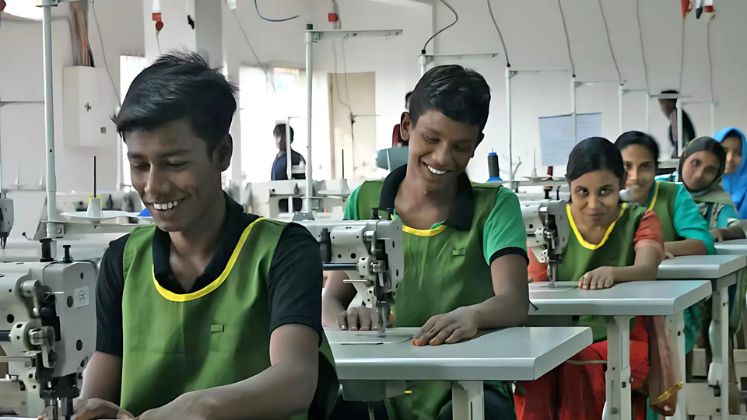
A recent study by the University of Nottingham’s Rights Lab in collaboration with GoodWeave International has uncovered alarming evidence of child labour and modern slavery in Bangladesh’s RMG supply chains. The RMG sector, employing over 4 million individuals, predominantly women play a critical role in the country’s economy, exporting 80 per cent of its production to Europe and the United States.
Despite ongoing efforts to enhance working conditions within the sector, the report indicates that worker exploitation continues to thrive, particularly in hidden, subcontracted tiers of the supply chain associated with global exports. The study aimed to document the risks of modern slavery and child labour in the RMG industry, gathering data through surveys and focus group discussions with over 2,000 adult and minor workers across 20 industrial clusters in Dhaka and Chattogram, the country’s principal garment production hubs.
Key findings from the report, titled Modern Slavery and Child Labor in Bangladesh’s Garment Sector: Documenting Risks and Informing Solutions, include:
Child labour is prevalent in RMG supply chains, particularly within subcontracted factories, with all minors interviewed being illegally employed.
Among adult RMG workers surveyed, 32 per cent reported earnings below the minimum wage, with 7 per cent living below the international poverty line.
Nearly one-third of factory workers indicated that they work over ten hours a day, six days a week, exceeding the maximum limits set by international and Bangladeshi law, an indication of potential forced labour.
Despite a higher number of women in the workforce, they earn, on average, Taka 2,000 (US $ 18) less per month than their male counterparts.
Over half of the surveyed factory workers reported experiencing threats or abuse at their workplace, with 68 per cent of adult workers and 90 per cent of minors who reported abuse being female.
The report outlines specific recommendations for the Bangladeshi government, international buyers, local garment suppliers, non-governmental organizations, and trade unions aimed at improving supply chain transparency, conducting risk-based human rights due diligence, fairly compensating workers, and effectively addressing child and forced labour.
Zoe Trodd, director of The Rights Lab, emphasised the importance of this research, stating, “Our extensive research on modern slavery in supply chains shows that manufacturing is one of the high-risk industries for forced labour. We are pleased to collabourate with GoodWeave and the Bangladesh Labor Foundation on this research to understand the scale and nature of exploitation in garment production and identify critical areas for change.”
Jon Jacoby, CEO of GoodWeave International, reiterated the need for collective action, stating, “This report highlights persistent risks of exploitation in the hidden tiers of Bangladesh’s garment supply chain while proposing systemic and scaled solutions. By joining forces for effective due diligence, we can protect the rights and dignity of vulnerable workers and children while supporting the sustainable growth of this crucial industry for Bangladesh.”
The findings underscore the urgent need for concerted efforts to address these issues and ensure decent working conditions for all individuals involved in the garment sector.






